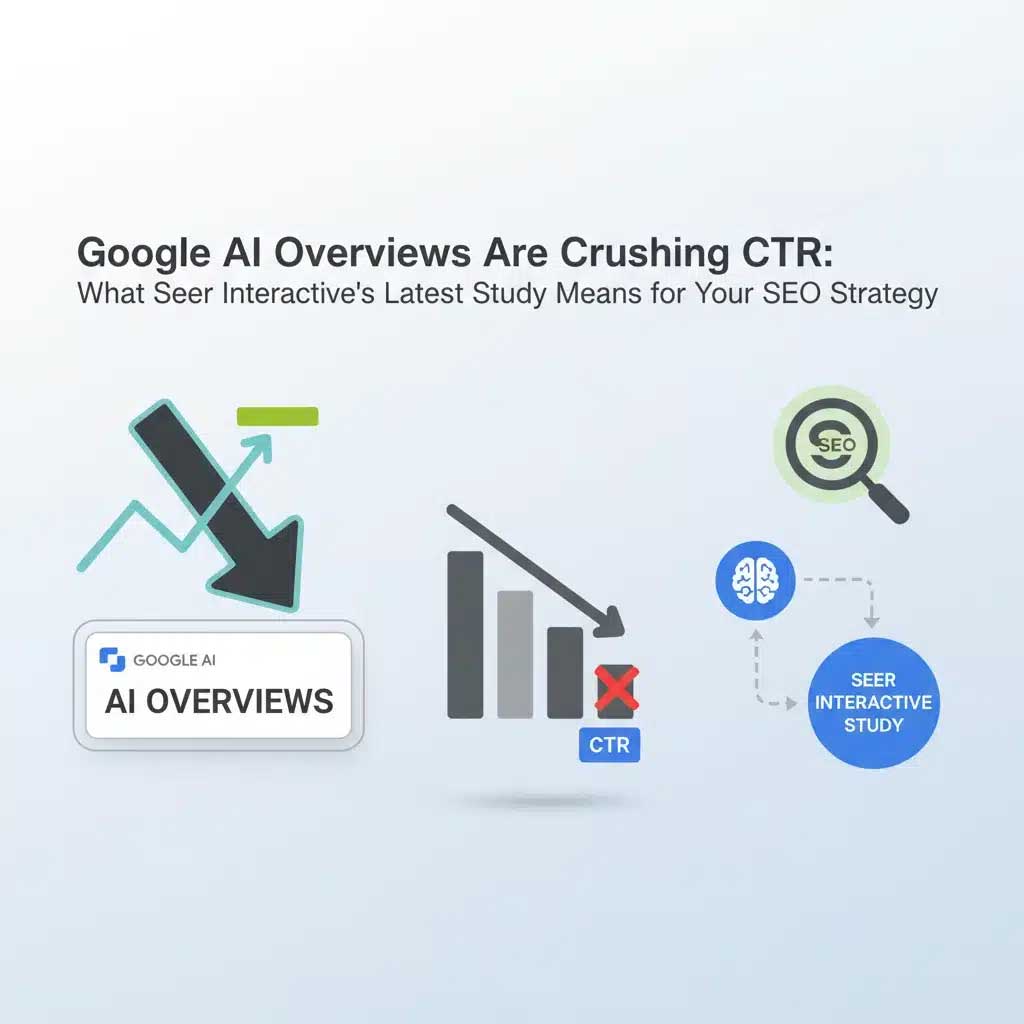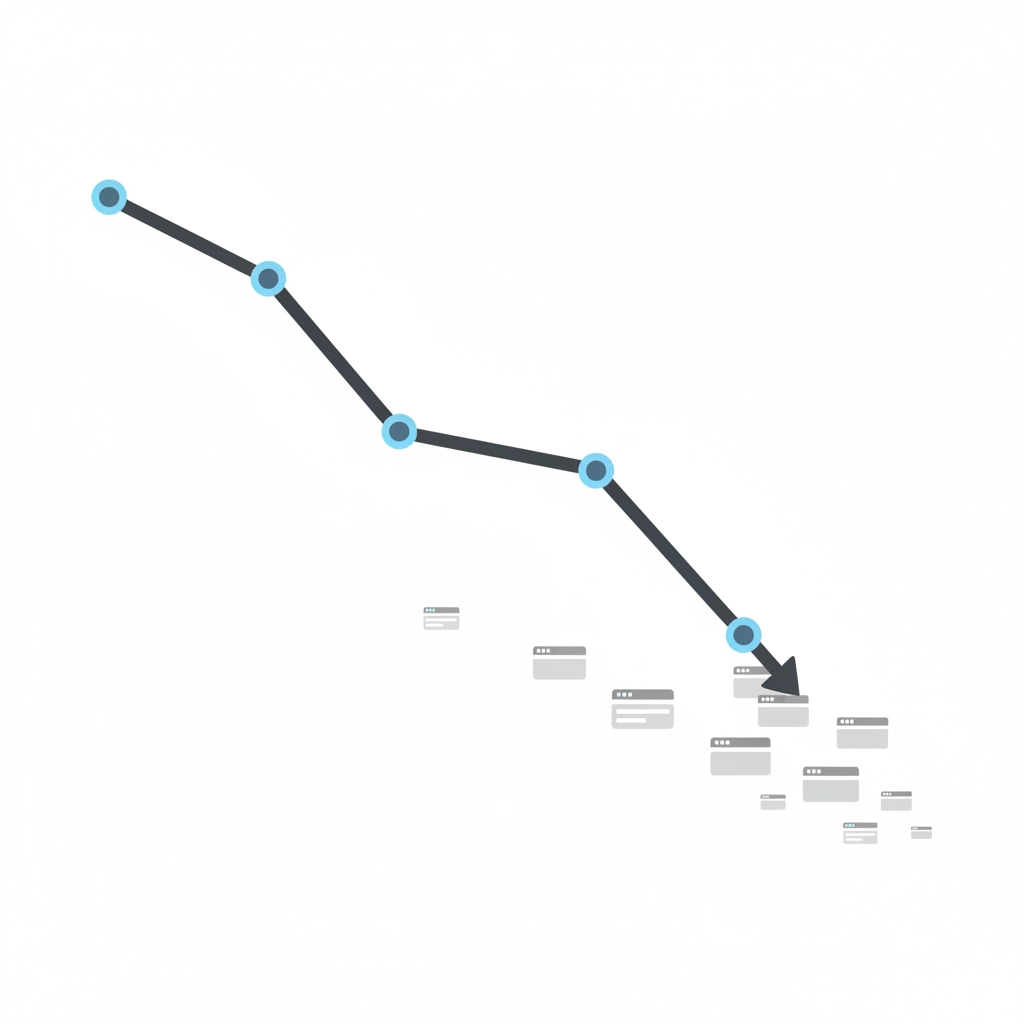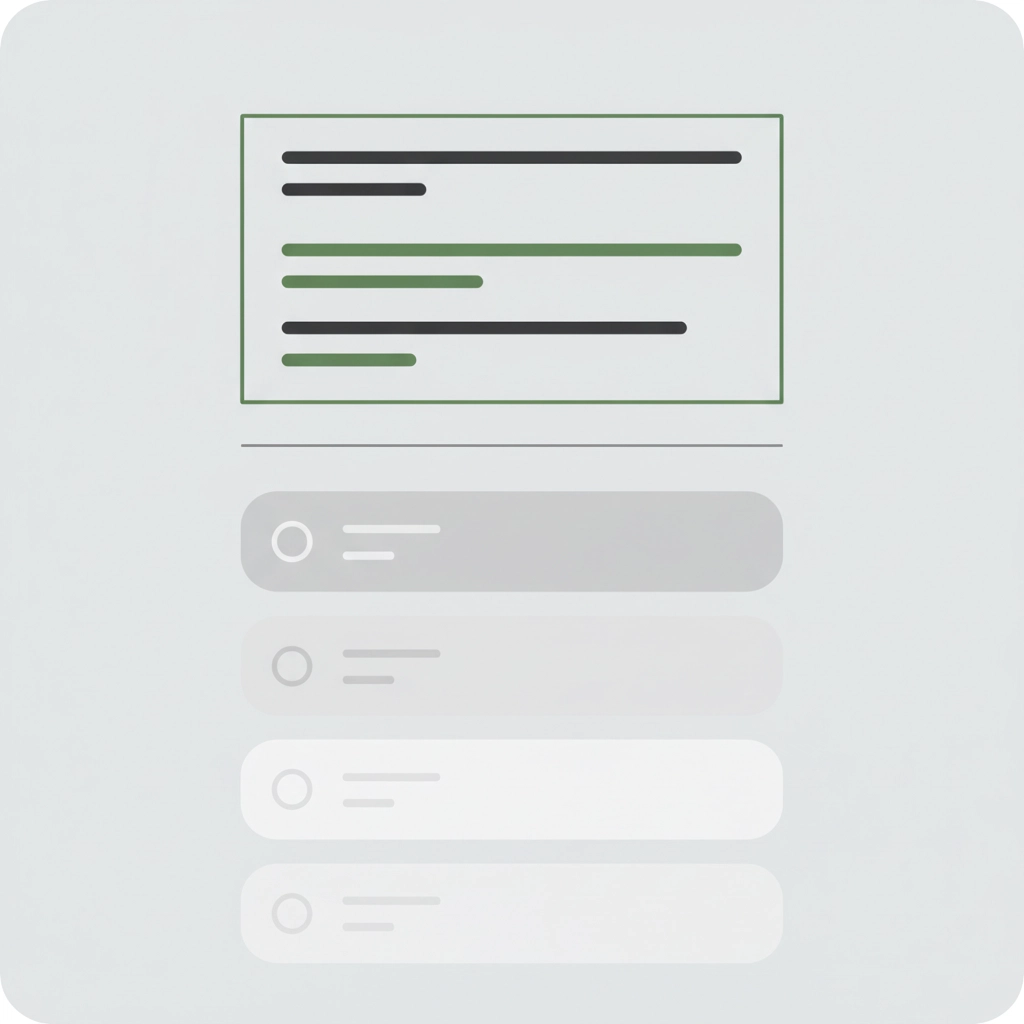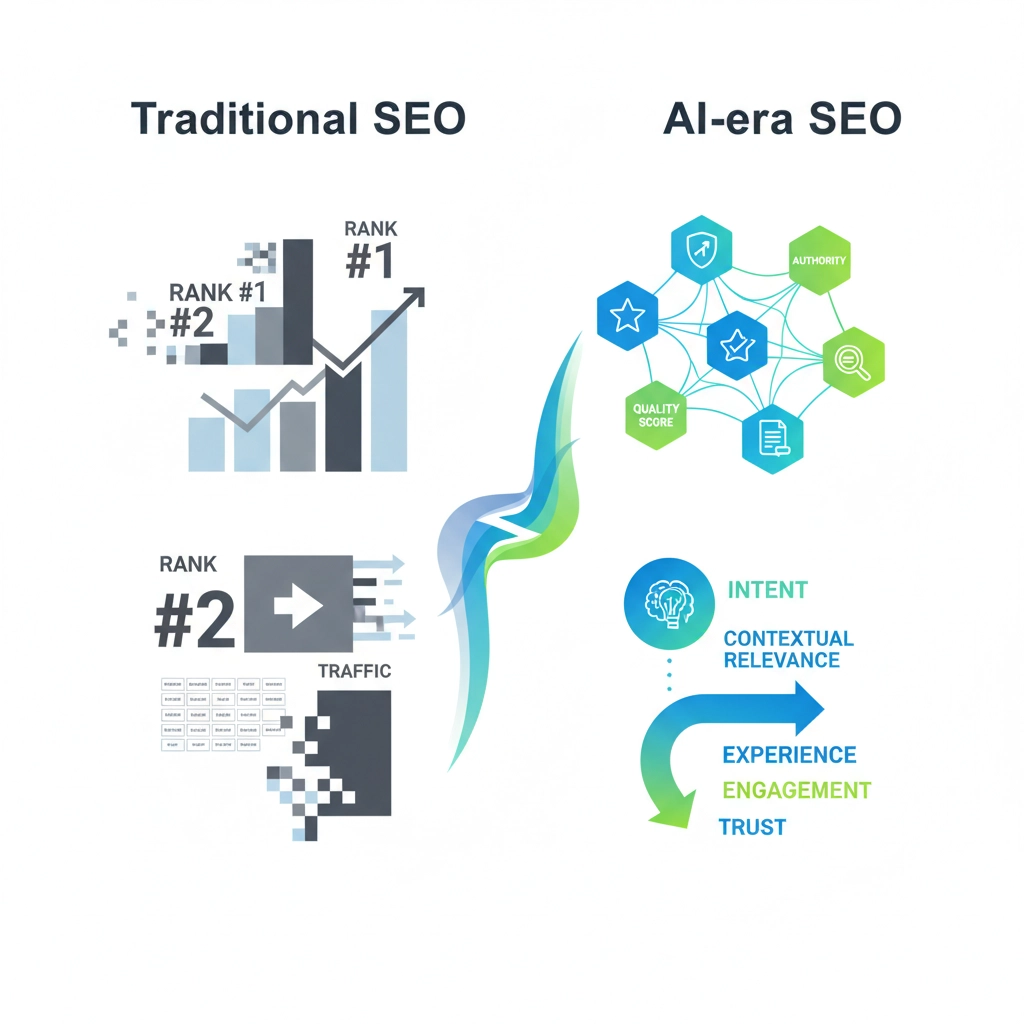The numbers are in, and they're brutal. Seer Interactive's latest study just dropped a bombshell that's sending shockwaves through the SEO community: Google's AI Overviews are driving a 61% drop in organic click-through rates and a 68% drop in paid CTR.
If you're still measuring SEO success by traffic volume alone, it's time for a reality check. The game has fundamentally changed, and businesses that don't adapt are about to get left behind.
The Scope of Seer's Devastating Findings
Seer Interactive didn't mess around with this research. They analyzed 3,119 informational queries across 42 organizations, examining a massive dataset of 25.1 million organic impressions and 1.1 million paid impressions from June 2024 through January 2025.
Here's what they discovered:
- Overall organic CTR plummeted from 1.41% to 0.64% : that's a 55% decline
- AI Overviews now trigger for 99.2% of informational queries (searches starting with "what," "why," or "how")
- Even non-AIO queries are seeing significant traffic drops as Google's algorithm shifts
The study tracked both organic and paid search performance separately, revealing that this isn't just an organic problem. Paid search advertisers are getting hammered too, with traditional bid strategies becoming obsolete almost overnight.
Why Your Traffic Is Disappearing (And It's Not Coming Back)
Google's AI Overviews appear at the very top of search results as AI-generated summaries that pull information from multiple sources. Users get their answers without ever needing to click through to your website.
The mechanism is simple but devastating: AI Overviews push traditional organic listings further down the page, dramatically reducing visibility for pages that previously ranked in coveted top positions. This creates a domino effect where both organic and paid listings suffer massive visibility losses.
Here's the thing : this isn't a temporary glitch or something Google will roll back. AI Overviews are powered by Gemini, Google's most advanced AI model, and they represent the future of search. The traditional "10 blue links" format is dying, and it's not getting resurrected.
The Death of Traditional SEO Metrics
For years, SEO professionals have obsessed over rankings, impressions, and click-through rates. Seer's study proves these metrics are no longer reliable indicators of SEO success.
Rankings mean nothing if AI Overviews are answering queries without sending traffic to websites. Impression volume is worthless if those impressions aren't converting to clicks. Traditional CTR benchmarks are obsolete when the entire search landscape has shifted.
The businesses that will survive this transition are the ones that stop chasing vanity metrics and start focusing on what actually matters in the AI-driven search era.
The New Success Metrics That Actually Matter
Smart businesses are already pivoting to new performance indicators that reflect the AI-dominated search reality:
Authority and E-E-A-T Signals: Since Gemini analyzes content quality and credibility to generate AI Overviews, your expertise, experience, authority, and trustworthiness directly impact visibility. Content that demonstrates clear expertise has a better chance of being cited in AI-generated answers.
AI Overview Citations: Being featured in an AI Overview might reduce overall traffic, but it often delivers higher-quality visitors. These users have already been pre-qualified by Google's AI as having genuine interest in your solution.
Share of Voice in AI Results: Instead of tracking traditional search rankings, monitor how often your brand gets mentioned or cited in AI-generated content across relevant query categories.
Conversion Quality Over Traffic Volume: Focus on attracting fewer but more qualified visitors who are ready to engage with your business, rather than casting a wide net for general awareness traffic.
Your Action Plan for the AI-First Search Era
The businesses thriving in this new landscape aren't the ones mourning lost traffic : they're the ones adapting their strategies to work with AI, not against it.
1. Restructure Your Content Strategy
Stop creating content just to rank for high-volume keywords. Instead, develop comprehensive, authoritative pieces that answer not just the primary question but also the logical follow-up questions users might ask.
Google's AI Mode, launched in mid-2025, transforms search into an interactive chat experience. Your content needs to anticipate related queries and provide complete information that supports ongoing conversations with AI.
2. Invest in Multimodal Content
AI Overviews run on Gemini, which processes images, audio, and video alongside text. Content that incorporates rich media formats has a competitive advantage in AI-generated results. This means infographics, videos, podcasts, and interactive elements aren't nice-to-haves : they're essential.
3. Optimize for Entity Recognition and Structured Data
Google's AI needs to understand what your business does and how it relates to user queries. Implement comprehensive structured data markup, optimize your Google Business Profile, and ensure your brand entity is clearly defined across all digital touchpoints.
If you're not sure where to start with technical optimization, Expert SEO Consulting's AI content audit services can identify gaps in your current approach and provide specific recommendations for AI visibility.
4. Rethink Your Paid Search Strategy
With a 68% drop in paid CTR when AI Overviews appear, volume-based bidding strategies are financial suicide. Pivot to Google's AI-powered tools like Performance Max campaigns and Smart Bidding to optimize for conversions rather than clicks.
Your paid ads need to offer something AI summaries can't: exclusive offers, personalized services, or unique differentiators that require human interaction.
5. Diversify Beyond Google
Full disclosure: putting all your marketing eggs in Google's basket was always risky, but now it's downright dangerous. The businesses that will weather this transition are building multi-channel marketing strategies that don't depend entirely on search traffic.
This includes:
- Email marketing to own your audience relationship
- Social media presence for direct brand engagement
- Content partnerships and guest posting on industry sites
- Direct navigation through brand awareness campaigns
The Competitive Advantage Hidden in Plain Sight
Here's what most businesses are missing: while everyone's panicking about lost traffic, smart companies are recognizing the opportunity.
AI Overviews are actually doing you a favor by pre-qualifying visitors. The people who click through after reading an AI-generated summary are more informed about their problem and more likely to be ready for your solution.
The key is positioning your business as the logical next step after the AI provides initial information. This means creating content that acknowledges what users already know (from the AI Overview) and then provides the deeper insights, personalized solutions, or specific services they need to move forward.
What Success Looks Like in 2025 and Beyond
The businesses winning in the AI-first search era aren't trying to fight Google's changes : they're embracing them and finding ways to add value in the new ecosystem.
Success metrics now include:
- Being cited as a credible source in AI-generated content
- Attracting highly qualified traffic that converts at higher rates
- Building direct brand relationships that bypass search entirely
- Demonstrating expertise that AI can reference but not replace
If you're struggling to adapt your SEO strategy to these fundamental changes, our advanced SEO techniques and AI-focused optimization approaches can help you navigate this transition successfully.
The search landscape has fundamentally changed, and there's no going back. The question isn't whether you'll adapt to AI-driven search : it's whether you'll adapt fast enough to maintain your competitive advantage.
The businesses that recognize this shift as an opportunity rather than a threat will be the ones still standing when the dust settles. The choice is yours.










